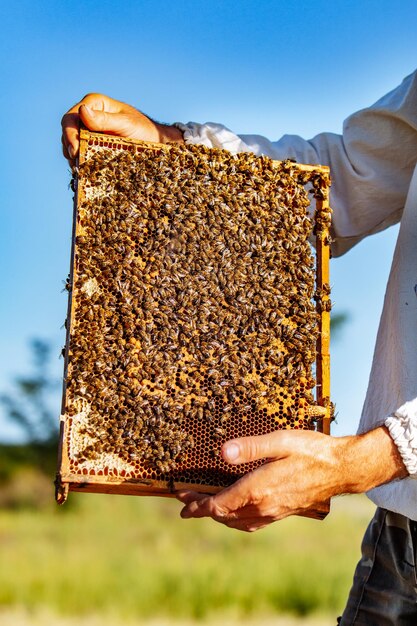Apiculture, also known as Beekeeping, is the practice of keeping bees in artificial hives for honey production and other bee products. Apiculture has been practiced since ancient times, but the impact it has had on modern society cannot be overstated. The main benefits of apiculture are numerous: increased food production through pollination; improved crop yields; a higher quality of life for local communities through additional income sources from honey or wax harvesting; and finally, a healthy environment with more diverse plant life due to increased pollination.
The most important aspect of successful apiculture starts with selecting the right species of bee. Different species have different characteristics that can make them better suited to particular climates and environments. For instance, some may be better suited to colder areas while others may do well in warmer climates such as deserts or tropical regions. In addition to this choice there are also certain physical structures necessary for successful beekeeping such as hives, equipment for managing colonies (smokers etc.), tools for extracting honeycombs without damaging them (uncapping knives), frames and foundation sheets used inside the hive bodies etc.. All these components must be properly selected and maintained in order for an apiary to succeed long-term.
In terms of management practices, it is necessary that all colonies within an apiary receive equal attention both during active seasons as well as during winter months when they should not be disturbed at all unless absolutely necessary. Furthermore regular inspections should take place in order to spot any potential problems early on before they become too serious which could lead to colony losses if left untreated. During each inspection various data points need to be recorded including detailed notes about queen health/laying patterns, number of drones/workers present among other things which will help inform decisions regarding how best manage specific colonies moving forward based on their individual needs at that time frame . Finally provisioning your colonies with adequate nutrition throughout each season is essential since poor diets can lead directly affect their overall health adversely leading even further issues down the line so its important keep up with regularly feeding them pollen supplements when natural supplies start running low especially towards later stages summer/fall when nectar resources tend become scarce .
By following these guidelines it’s possible create profitable enterprise out raising bees providing you put sufficient amount effort into researching beforehand learning from experienced professionals whenever possible . With correct management practices proper structural considerations taken into account , anyone willing dedicate time energy can enjoy rewarding experience rearing buzzing friends who will reward us many gifts sweetest kind


